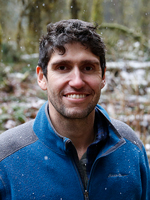
About the Webinar
Some 40 million miles of roadways encircle the earth, yet we tend to regard them only as infrastructure for human convenience. While roads are so ubiquitous they’re practically invisible to us, wild animals experience them as alien forces of death and disruption. More than a million animals are killed by cars each day in the US alone, creatures from antelope to salmon are losing their ability to migrate in search of food and mates, and the very noise of traffic chases songbirds from vast swaths of habitat.
Today, road ecologists are seeking to blunt that destruction through innovative solutions. Conservationists are building bridges for California’s mountain lions and tunnels for English toads, engineers are deconstructing the labyrinth of logging roads that web national forests, and community organizers are working to undo the havoc highways have wreaked upon American cities. In this presentation, Ben Goldfarb discussed the ecological harms wrought by transportation and the movement to redress them—and how we can create a better, safer world for all living beings.
The webinar, held in conjunction with a CTS Environment and Energy in Transportation Council meeting, was part of CTS's Rural Needs, Statewide Answers: Improving Transportation for All thematic focus in 2024.
Speaker

Ben Goldfarb is an environmental journalist whose work has appeared in National Geographic, The Atlantic, Smithsonian Magazine, and many other publications. He is the author of Crossings: How Road Ecology Is Shaping the Future of Our Planet, named one of the best books of 2023 by the New York Times and The New Yorker. His previous book—Eager: The Surprising, Secret Life of Beavers and Why They Matter—received the PEN/E.O. Wilson Literary Science Writing Award. He lives in Colorado.
More Information
Please contact Samantha Hahn-Douville at snhahn@umn.edu.